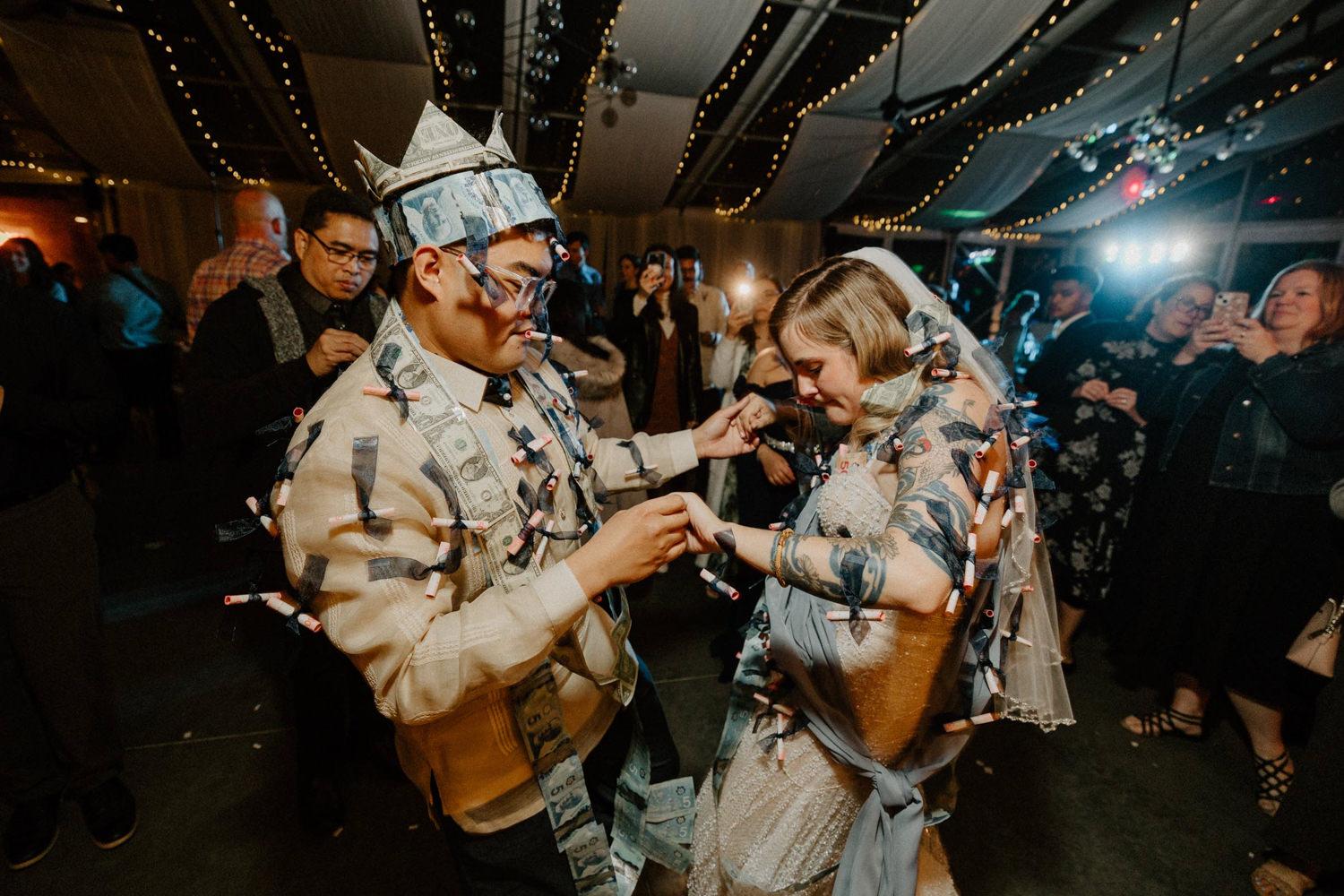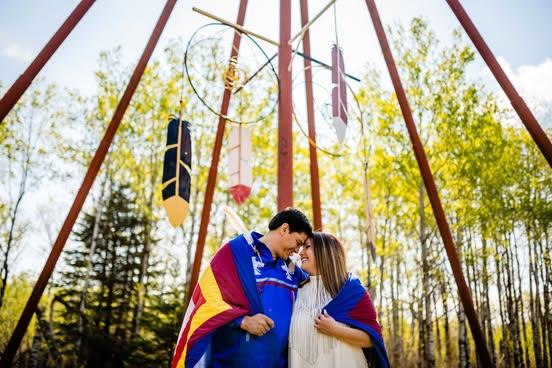Weddings may look different in every culture—but the desire to gather, honour, and celebrate love is universal.
From breaking plates to henna ceremonies, tea rituals to multi-day feasts, wedding traditions around the world reflect deep histories, spiritual beliefs, and evolving identities. In multicultural Canada, couples often blend these global customs into modern ceremonies, creating meaningful and unique celebrations that honour their roots.
This article explores iconic wedding traditions from cultures across the globe—and how they continue to shape weddings in Canada today.

Africa: Dancing, Blessings, and Symbolic Cloth
In many African cultures, weddings are vibrant, community-centered celebrations.
- Kente cloth in Ghanaian weddings symbolizes family heritage and is often worn by the couple.
- In Nigerian weddings, couples participate in a traditional engagement ceremony, which may include “spraying” money on the couple as a blessing.
- Dance, music, and storytelling are central, often extending across multiple days.
In Canada, these customs are frequently blended with Western traditions in Afro-Caribbean and African diasporic weddings.
South Asia: Rituals, Colour, and Community
Indian, Pakistani, Bangladeshi, and Sri Lankan weddings are known for their beauty and depth of ritual.
- Sangeet nights, mehndi ceremonies, and haldi rituals precede the main event.
- Brides often wear red or gold, adorned with intricate jewellery and henna designs.
- Ceremonies like the Saat Phere (Seven Steps) or Nikah (Islamic marriage contract) mark the formal union.
In Canada, South Asian weddings often include both traditional and Western ceremonies, reflecting both heritage and modern identity.
East Asia: Honour, Family, and Symbolism
China:
- A tea ceremony is central, symbolizing respect to parents and elders.
- Red is the dominant colour, representing luck and happiness.
- Banquets can feature 12+ courses, with symbolic foods (like fish for abundance).
Japan:
- Shinto ceremonies involve traditional dress, sake-sharing rituals, and blessings from priests.
- Many couples also opt for a Western-style ceremony or fusion celebration.
Canadian Chinese and Japanese weddings often honour family through incorporated rituals, attire, and food customs.

Middle East: Music, Gold, and Gendered Celebrations
Weddings in Middle Eastern cultures often combine religious ceremony with high-energy celebration.
- In Persian weddings, the Sofreh Aghd is a ceremonial table rich in symbolism.
- Zaffe (a grand musical procession) marks the couple’s entrance in Lebanese and Egyptian weddings.
- Gold jewellery, poetry, and gender-separate events are common.
Many Canadian couples of Middle Eastern descent adapt these traditions to suit mixed audiences or secular preferences.

Europe: Folklore and Festivity
Greece:
- Crowns called stefana are placed on the couple’s heads, symbolizing unity.
- The hora dance and breaking of plates are common celebratory elements.
Scotland & Ireland:
- Handfasting ceremonies and bagpipe processions reflect Celtic roots.
- Traditional kilts and clan tartans are worn with pride.
European-Canadian weddings may include nods to heritage like music, toasts, or heirloom details.

Indigenous Wedding Traditions in Canada
Indigenous ceremonies vary by nation but often include:
- Smudging, drumming, and sacred fire rituals
- Blanket ceremonies symbolizing unity
- Emphasis on community, nature, and ancestry
Many Indigenous couples today balance traditional protocols with Western structures, often educating guests as part of the ceremony.
Global Traditions, Canadian Context
Modern Canadian weddings often reflect cultural blending:
- A Jewish-Métis couple might combine chuppah blessings and Métis sash ceremonies
- A Tamil-Greek couple might host both a Hindu wedding and a church service, followed by a shared reception
- Interfaith couples increasingly create hybrid rituals or write their own to reflect shared values
The result is a wedding that’s both deeply personal and globally rooted.
Photographers and Cultural Storytelling
For photographers, multicultural weddings offer:
- Dynamic rituals, rich textures, and emotional moments
- Opportunities to research and respectfully represent traditions
- A chance to tell a story that spans generations and geographies
Authentic documentation of these elements requires curiosity, sensitivity, and care.

Related Reading in the History of Weddings Series:
- The History of Wedding Superstitions and Rituals
- The History of the Wedding Ceremony
- The History of Wedding Symbols and Colours
- The History of Wedding Fashion Beyond the Dress
Continue Planning Your Wedding
Ready to dive into the details? How to Find the Perfect Wedding Photographer: The Ultimate Guide to Making the Right Choice